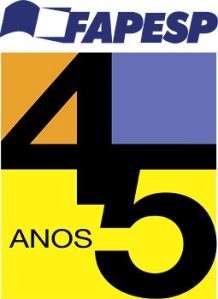 Fapesp collectionThe Vila Rica suite, by Camargo Guarnieri, and Estância, by Alberto Ginastera, underscored the celebration of FAPESP’s 45th anniversary on May 23. These pieces were played by the São Paulo State Symphony Orchestra (Osesp), conducted by Victor Hugo Toro, the Chilean assistant conductor. More than 900 guests attended the concert and the ceremony held at the Sala São Paulo concert hall in downtown São Paulo.
Fapesp collectionThe Vila Rica suite, by Camargo Guarnieri, and Estância, by Alberto Ginastera, underscored the celebration of FAPESP’s 45th anniversary on May 23. These pieces were played by the São Paulo State Symphony Orchestra (Osesp), conducted by Victor Hugo Toro, the Chilean assistant conductor. More than 900 guests attended the concert and the ceremony held at the Sala São Paulo concert hall in downtown São Paulo.
Luiz Gonzaga de Mello Belluzzo, a professor at the Economics Institute at the State University of Campinas (Unicamp) delivered the event’s opening speech, representing the academic community. He highlighted an important aspect of the state of São Paulo’s scientific culture: the traditional respect that state governments have for science. “The culture of knowledge is converted into stability and the continuity of support for research, guaranteed by FAPESP for many years and which has been responsible for so many important achievements in Brazilian science”, stated Belluzzo, impressed by the fact that successive governments in the state of São Paulo have continued to respect the transfer of funds and have always managed to uphold the continuity of the research grants. “FAPESP bears witness to the possibility of Brazil achieving lasting stability.”
Carlos Henrique de Brito Cruz, the Foundation’s scientific director, stated that FAPESP is based on three cornerstones: support for the training of human resources, the financing of academic research, and support for applied research that is of interest to industry and the government. “The Foundation has been able to comply with these undertakings well for 45 years”, said Brito Cruz. “So much so that its bylaws have never been amended.”
Cooperation
When it was created, FAPESP gave rise to the beginnings of an identity that outlined a dynamic process of identification between the researchers’ community and the institution, stated Carlos Vogt, president of FAPESP. “This process soon changed into intense cooperation for supply, demand, critical and evaluative co-operation, knowledge production, its dissemination and publication”, he said. “Thus, one closes the circle of the Foundations program openings, which range from grants for innovation to the expansion of investment in the development of competencies and with scienctific and technological development in the state being the base of its economic and social development.”
Secretary of Culture João Sayad, representing the governor, José Serra, considered that the creation of the Foundation in 1962 was a feat for Brazilian society. “Sometimes, we fail to see the good things that are done in this country and thus we are surprised when we see our own achievements, such as the creation of FAPESP”, he said. “Today, wherever science and technology are mentioned in São Paulo, FAPESP is mentioned as well.” For the Secretary, the Foundation has become an example for all of Brazil.
Republish